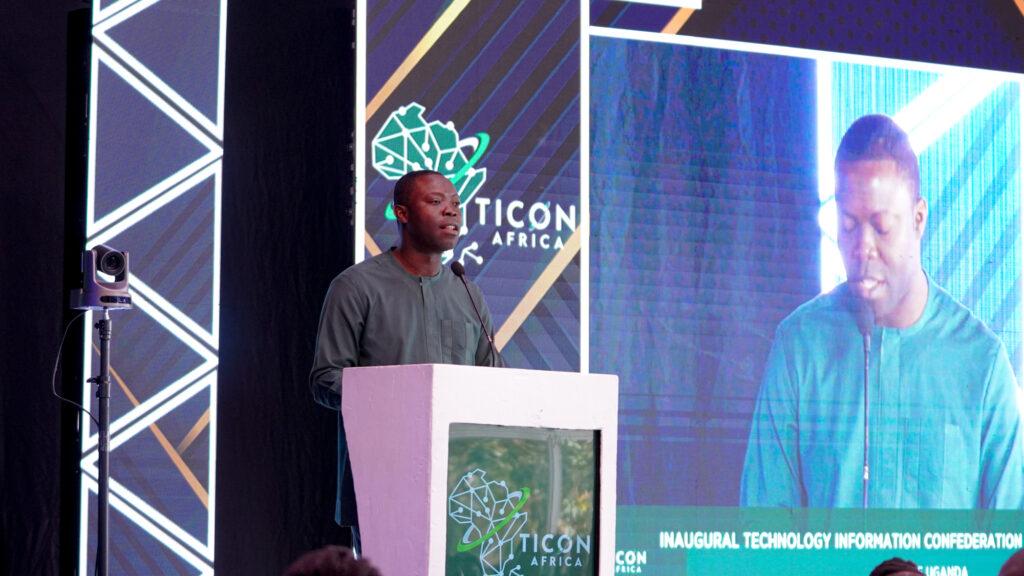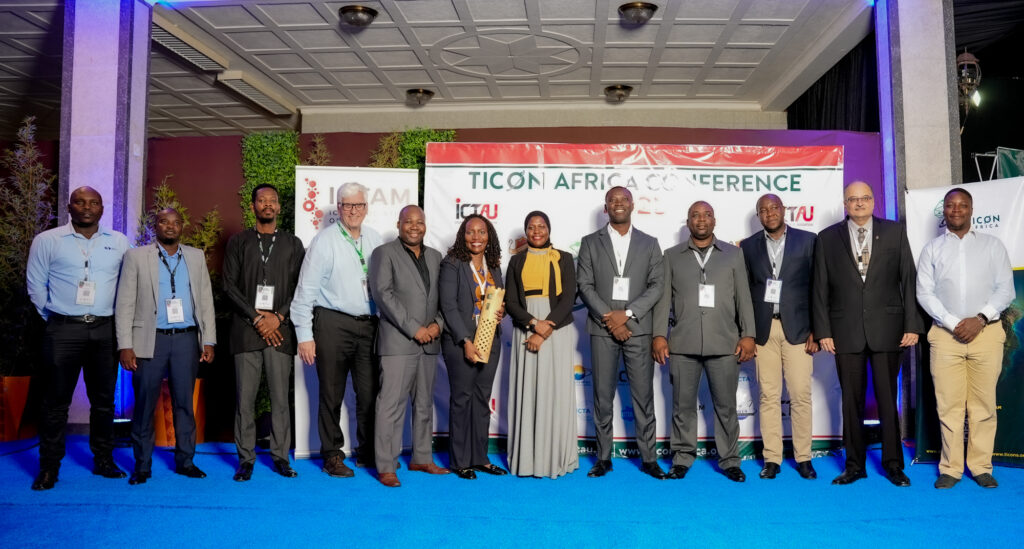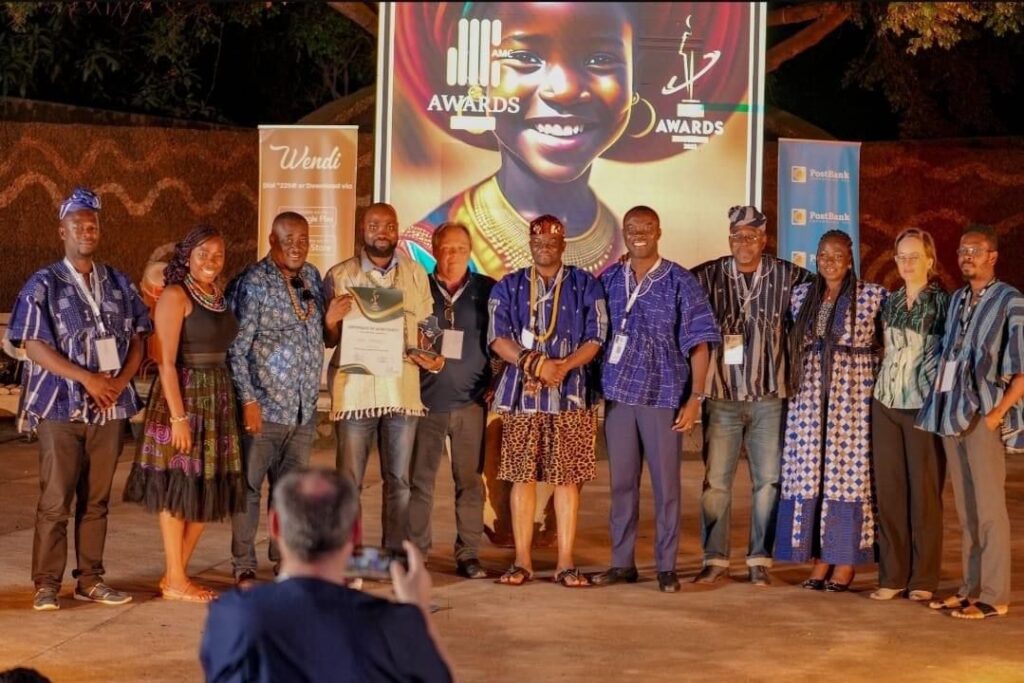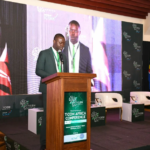TICON Africa conference held in Uganda from September 6 to 9, 2023.
The Technology Information Confederation Africa (TICON Africa), a pan-African body of technology professionals that aims to promote excellence and innovation in the field of ICT across the continent. The article reports on the inaugural TICON Africa conference that was held in Uganda from September 6 to 9, 2023, with the theme of powering Africa into the future with the latest technological innovations. The article also introduces the founding members, objectives, and activities of TICON Africa, as well as its new additions from Botswana and Malawi.
TICON Africa is a platform that connects ICT professionals from different African countries, with the aim of fostering excellence in technology through learning, networking, and cooperation among its members. The platform’s vision is to create a community of professionals who are passionate about advancing technology and driving innovation in Africa.

A continental nonprofit organization, the Technology Information Confederation Africa (TICON Africa) is a pioneering network of technology professionals who are leading the advancement of information technology knowledge and practice throughout Africa. It supports African ICT professional associations by conducting research and development on ICT needs on the continent; publishing ICT related activities in various countries to share best practices; providing education to enhance the capacity of ICT professionals through professional qualifications; organizing networking events such as annual conferences that bring together ICT professionals from different African countries to exchange knowledge and business contacts, and finally, raising funds for capacity building of professionals in various countries. It was established in 2022 by its founding members: ICT Association of Zimbabwe (ICTAZ), Information and Communications Technology Association of Zambia (ICTAZ), Institute of ICT Professionals, Ghana (IIPGH), ICT Association of Uganda (ICTAU), South African ICT Association (SAICTA), with its first president from Ghana (David Gowu, IIPGH). Its recent members are Botswana Information Technology Society (BITS), and ICT Association of Malawi.

TICON Africa is a confederation of ICT professional associations in Africa that aims to enhance the value and recognition of its members by establishing standards for ICT professionals and promoting ICT as a career choice that can contribute to the socio-economic development of the continent. TICON Africa seeks to collaborate with all existing ICT professional associations in every African country and to assist in the formation and mobilization of such associations where they are lacking. TICON Africa also strives to ensure the standardization of professional qualifications, research, publications, events, and regulation reforms across the continent.
The first TICON Africa conference was held at the Imperial Botanical Beach Hotel, Entebbe, Uganda, from September 6 – 9, 2023, with the theme of powering Africa into the future with the latest technological innovations. The conference was hosted by the ICT Association of Uganda (ICTAU) and aimed to unify ICT talent and create opportunities for the development of Africa.
The conference included keynote speeches, interactive sessions, and panel discussions that provided delegates with the knowledge and skills to leverage and advance Africa’s ICT potential.
The African continent is witnessing a rapid growth in the technology sector, as various stakeholders are leveraging technology to improve their efficiency and effectiveness. The adoption of new and emerging technologies such as artificial intelligence (AI), internet of things (IoT), software engineering, robotics, virtual reality (VR), augmented reality (AR), metaverse and others is increasing across different domains. Technology has become a powerful enabler of how people and businesses communicate, collaborate, and create value. It has also facilitated the engagement of governments with their citizens, and the outreach of influencers such as celebrities with their communities, fans, and followers. However, there are still many challenges and barriers that prevent the continent from fully harnessing the potential and benefits of these emerging technologies, such as skills gaps, technology infrastructural gaps, cultural barriers, regulation red tapes in some countries among others. One key solution to address these gaps is to build the capacity of ICT professionals across the African continent through a platform that will foster knowledge sharing, skills development, partnerships, and investment by technology organizations.
The theme of this conference, “Unifying ICT Talent to Power the African Continent to 2030 and Beyond,” reflects the urgency and importance of our mission. Africa is on the verge of a digital revolution, and it is our shared duty to ensure that this transformation is inclusive and beneficial for all its people, leaving no one behind.
The conference was opened by Professor Robert Ebo Hinson, Pro Vice-Chancellor, Ghana Communication Technology University, who spoke on Strategy and Technology, Expanding the Success of Pan-African Brands.

The event explored crucial topics for three days.
Closing the Digital Gap: The uneven distribution of technology, connectivity, and digital resources in Africa affects various sectors negatively, which demands a plan to ensure equal access to these elements throughout the continent.

ICT Skills and Capacity Building: Equipping our youth with ICT competencies, advancing digital literacy, and stimulating entrepreneurship as key steps towards a prosperous future.
Public-Private Partnerships: By strengthening the cooperation between public and private entities, to harness ICT for sustainable development, creating lasting impact.
Emerging Technologies and Innovation: Investigating the potential of emerging technologies, such as artificial intelligence, blockchain, and the Internet of Things (IoT), in transforming Africa’s future.
Policy and Regulation: Solid policies, regulations, and frameworks essential to supporting the growth of ICT infrastructure and digital innovation in Africa.
Day 1, Bridging the Digital Divide

The event began with a keynote speech by Professor Fred McBagonluri, the President of Academic City University College, Ghana. He shared his insights on the current state of ICT and how it compares across different regions in Africa. His speech paved the way for a panel discussion on how to bridge the digital gap in the continent, moderated by Badru Ntege, the Co-Founder and Director of Technology and Innovation at NFT Consult, Uganda. The panelists included Alain Gbeasor, a Technology and Digital Entrepreneur from Ghana, Binimbi Chellah, a Business Solutions Developer at Sybrin, Zambia; Francois Venter, a Project Leader at Belgium Campus iTversity, South Africa; and Aidah Bukubuza, the Founder and Team Leader of AYDIA Gender and Technology Initiative, Uganda.
The second topic of the day was The State of ICT in Education, presented by Michael Nyitegeka, the Director of Refractory, Uganda. He highlighted the challenges and opportunities of ICT integration in education systems. This led to another panel discussion on The Future of ICT Education, moderated by Hanna Schlingmann, the Project Manager of AFOS Foundation. The panelists were Grace Achire Labong, the Manager of International Business Development for East and Central Africa at Arxia; Dr Jan Mentz, the Academic Dean of Belgium Campus IT University, Richard Kafui Amanfu, the Operations Director of IIPGH. The final discussion of the day focused on Skills Development Initiatives: Coding Caravan & Tech Education, moderated by Angela Semwogerere, the MD of Spidd Africa. She was joined by Gifty Mottey-Gowu, the Administrator of IIPGH Coding Institute, and Juliana Ametorwogo, an RF Specialist at Vodafone Ghana.
Day 2, Public & Private Sector Collaboration | Innovation & Emerging Technologies

The day began with Dr Aminah Zawedde, the Permanent Secretary of the Ministry of ICT and National Guidance in Uganda, who spoke about One Africa, One Vision: Collaboration for Inclusive ICT Development. She was followed by two insightful presentations: Shirley Gladys Nakyejwe, a Senior ICT Officer and Intellectual Property Management Specialist at the same ministry, revealed Uganda’s Digital Transformation Roadmap, and Dr Piet Kommers, a UNESCO Learning Technologies expert, discussed how to unleash public-private partnerships and policy frameworks.
The next session focused on Innovation and Emerging Technologies, where Noah Baalessanvu, the Head of Technology at Savannah, explained Blockchain and Cryptocurrency.
Dr Jabu Mtsweni, a CSIR Chief Researcher and Centre Manager, gave an address on Information and Cyber Security Research, which set the stage for the day’s panel discussion on Generative AI: A Productivity Panacea or Pandora’s Box. The panel was moderated by Emmanuel Gbeve, the CTO of AIDEC Digital in Ghana.
The final presentation of the day was delivered by Harish Bhaat, a Data and Cybersecurity Specialist, who talked about Cybersecurity in Digital Inclusion. This led to a Q&A conversation on “Insights into the Dynamic World of Cybersecurity for the Board”.
Day 3, Marketing, and ICT
The final session of the conference focused on how Marketing and ICT can collaborate to leverage the AfCFTA, a trade pact that covers a market of more than 1.3 billion people and a combined GDP of around USD 3.4 trillion. The keynote speaker was James Byarunhanga, Managing Director of Raxio Data Centre, Uganda. He was followed by a panel discussion with Professor Robert E. Hinson, Pro Vice-Chancellor of Ghana Communication Techn University; Mr. Terrance Alinda, COO of Liquid Technology; and Jackie Namara Rukare, Marketing & Business Consultant, Uganda. The session was moderated by Michael Nyitegeka, Director of Refractory, Uganda.

The last session of the third day of the conference featured a talk on “New Exponential World (find your purpose) – Changing Technology, Changing Customer, Changing Competition” by Mr. Edgar Kasenene, CEO IDEX. He then joined the final panel discussion on the topic, “The pace of business transformation in the face of rapidly evolving technological innovation”. The panel was moderated by Haruna J Mawanda, ICT business transformation Specialist, and included Elolo Konglo, Head IT Infrastructure HTU, Ghana; Herbert Olowo, Head of Operations & IT, Absa Bank, Uganda; Ken Stober, CEO and Co-Founder of Simplifi Networks, Uganda; and Clement Sinyangwe, Head ICT, Chalimbana University, Zambia.
The conference concluded with a summary by Professor Fred McBagonluri, President of Academic City University College, Ghana. He highlighted the “Summary of Challenges and Opportunities – Call to Action – Bridging the Digital Divide in Africa”.
Ghanaian Delegation in Pictures

It was a triumphant moment for Team Ghana as they secured the coveted Tech Business Leader of the year award!
We applaud Louis Amenyo Adanuty, the founder and CEO of Teksol and Eganow, for impressing the judges with his creative solutions and outstanding leadership qualities. We look forward to Kenya hosting the next meeting of ICT leaders from across the continent.












 /home/afripjzx/technewsglobal.net/wp-content/themes/foxiz/templates/popup.php on line 167
/home/afripjzx/technewsglobal.net/wp-content/themes/foxiz/templates/popup.php on line 167